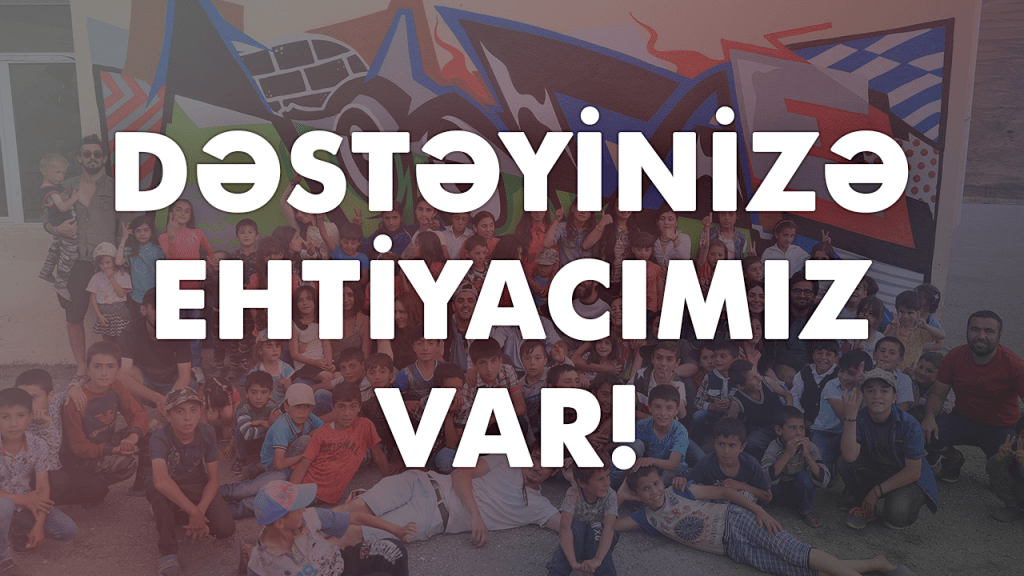Independence comes at the cost of depression

Depression among Azerbaijani women as a result of the crisis of authenticity
or
Depression as a payment for independence
Hi! My name is Fidan Mamedova, I am a psychiatrist, psychotherapist and researcher in the field of mental health.
 For me, as for a specialist, who has more than 17 years of practical experience in both stationary and extramural care, depression diagnosis, that I make on patients many times a day, sounds like salvation, hope and the opportunity to help my patient and guarantee a full recovery, return to the family, to children, to work, to friends, to one’s interests and daily affairs.
For me, as for a specialist, who has more than 17 years of practical experience in both stationary and extramural care, depression diagnosis, that I make on patients many times a day, sounds like salvation, hope and the opportunity to help my patient and guarantee a full recovery, return to the family, to children, to work, to friends, to one’s interests and daily affairs.
However, with all the opportunity to positively reflect in my profession through the diagnosis of Depression, I began to realize that this disease was an epidemic of my city and country, where I grew up and live. This aroused a scientific interest in me, and I decided to consider the problems of depression in our country.
The most surprising thing was that nobody was interested in this question before. Moreover, in the world, there is a vicious practice when in some country there is no data on any problem, scientists use the data of the countries of the nearby region. Such data certainly do not reflect the real picture of the existing problem and, naturally, does not take into account the cultural aspects of the other country.
For example: we could use the data of Georgia – it turned out that there are the same official prevalence figures, as in the world. Or, data of Iran, which is a closed Muslim society, in contrast to our secular, moderate Muslim state.
And so, the topic of my scientific work was: Epidemiology, i.e. the prevalence of depression in the female population of Azerbaijan. Cultural aspects of depression in Azerbaijan. The study of the phenomenon of Azerbaijani and Russian-speaking women and the impact of this phenomenon on the prevalence of depression in the population of the Azerbaijani female genotype.
I omit the details of the preparation and conduct of this study, I can only approximately tell you that only about 50 packs of 80 grams A4 format paper (25,000 sheets) were used. 1500 of 2150 interviewed respondents were included in the study; cooperation was established with Humboldt University (which gave the world 50 Nobel laureates – 10 in medicine) collaborators of which volunteered to become scientific supervisors of this study. The country’s first manual on the practical application of self-assessment scales was also published, as well as several articles were published in both Azerbaijani and European journals, which were adopted as peer review journals.
The most important achievement of this research, in my opinion, was that a number of young active professionals in the field of mental health and citizenship position, were able to show their scientific interest and creative approach in highlighting the urgent topic of women’s well-being in our country: for example, my creative colleague, researcher Sitara Ibrahimova, clarified the situation of women’s mental health in the region, where her models tell about themselves, their lives, their expectations and long-forgotten dreams. They associate their personal happiness and prospects of life with family members.
A brief review of the historical development of the female image in Azerbaijan will help to better understand the modern position of women in our country.
And so, the last century in Azerbaijan was marked by grandiose events that touched the life of every inhabitant. Having doubled its independence, Azerbaijan experienced the Soviet period, perestroika, two oil booms, which changed not only the appearance of the city, but also touched all areas of the country’s functioning.
One of the important events that marked this era was the announcement of the Independence of Women in Azerbaijan. And after 100 years, it seems interesting, what have a woman in Azerbaijan became in 100 years? What barriers did she overcome? What was achieved by the Woman of Azerbaijan?
As a psychiatrist, researcher and a woman, I decided to answer these questions from a professional position. And, as a result of a randomized study of the female population of the city of Baku, I received that 22% of the city’s female population aged 18-65 years feel signs of depression, regardless of family, religious status, employment and work ability. It would seem that research is conducted in order to answer questions, but not in this case. The risk factors for the development of depression in the analysis of the data showed an inverse result. 35.4% – women have higher education; 12% – are students; 37% – speaks at least 2 languages; 30.7% are practicing Muslim women; 22.5% of women indicated the position of the housewife as a workplace, which is also an achievement for women. All these facts are positive and in no way indicate the development of depression. So, what makes our women experience depression?
Further analysis of the data pointed to the cultural aspects and differences of the expressions and ideas of the Azerbaijani woman in comparison with the countries of the West. The research tool, used to determine depression, contained questions of a personal nature that participants preferred not to fill in. 33% drop-out rate!!! What is it – cultural closure, taboo, distrust?
And it turns out that well-educated, employed independent women of Azerbaijan, knowing several languages, with a well-developed social status, continue to live with their parents in 23%; and 34.2% of unmarried women remain living in the parental home.
Emancipated Modern Azerbaijani woman for 100 years has achieved:
- Access to education
- Access to male professions
- Access to management posts
- Achievements in sport
- Involve in art
And it seemed that everything is fine, but… Actually no, she is unhappy, depressed, in search for the meaning of life and in the pursuit of self-realization.
It almost seems like we traded depression for our independence!
- Independence leads to a change in social priorities: career, service to society, family, children. As a result, a person can’t decide on the main social purpose in life, which in turn leads to a lower sense of self-worth (if a person can’t determine for what s/he lives s/he falls into depression). For example: accelerated urbanization is a trend in the world, which we are seeing in Azerbaijan in the last few decades as well. What do we get? A person separated from an indigenous family, freed from attachment to one’s own housing, becomes more vulnerable, more self-centered.
- The more a person is independent the more s/he is alone. Depression is a disease of loneliness. You can be lonely even among your of friends and relatives too. This is existential loneliness.
Is it so? Today I will try to answer this vital question! We pay with depression for our independence! For this, we have to dwelve into the psychology of society. Often, to interpret a specific situation, it is necessary to consider it not only from the inside. It is quite obvious that society is experiencing a crisis of authenticity: the transition from the Soviet regime to independence.
Authenticity of the personality of Soviet materialism -it was impossible to have your own opinion. You could hide behind the crowd, the collective made a decision for you when you did not have mobility.
Today Azerbaijan is an open interjacent society:
- with different subcultural communities
- with large-scale social transformations
- with high social mobility
- with change of the values of most social categories for self-identification.
All of the above mentioned deepens the manifestations of the personal identity crisis marked:
- with loss of social identities
- with role confusion
- with search for new bases of personal and collective identity
- with restructuring life strategies
- with the need to adopt new social statuses and roles, behavioral patterns
Questions lying ahead of a woman:
- get married or get a master’s degree
- have a baby or build a career
- take a maternity leave for 3 years or start a PhD study,
- or look for a better paying job, or an interesting job, or build your own business, or become a downshifter, or organize distant work or learning.
Does it even matter?! The psychological crisis that leads to depression, which we observe in our society and try to explain its high indicators for ourselves, puts society before the choice of making a qualitative transition of a person to a new stage of development:
Emergence of new meanings and relationships with people, values, perceptions of themselves, a new picture of the world, building new life prospects.
There are no monosyllabic answers to a multifaceted situation, but today one can say for sure that the current level of development of a woman in Azerbaijan is only a stage in the formation of a new role of a woman in society. And dear women, do not think that today education, work, status, ability to drive a car, or achievements in sports or in art didn’t help to our depression. All this makes it possible to go and develop and self-actualize and realize self – authenticity and belonging further.
Combining the results of my and Sitara’s research, allowed us to come closer to a holistic understanding of the Azerbaijani Woman. A woman in Azerbaijan had not access to education, freedom of choice and independence during the last century, managed to successfully transform her social status. At the same time, we can observe a lack of satisfaction from self-realization, a constant search and, as a result, a mood disorder in the form of depression. This gives us reason to assume that, along with career success, it is important for a woman in Azerbaijan to understand authenticity and self-realization search for new personal and family values and beliefs, ideas about herself, a new picture of the world, and building new life perspectives.




